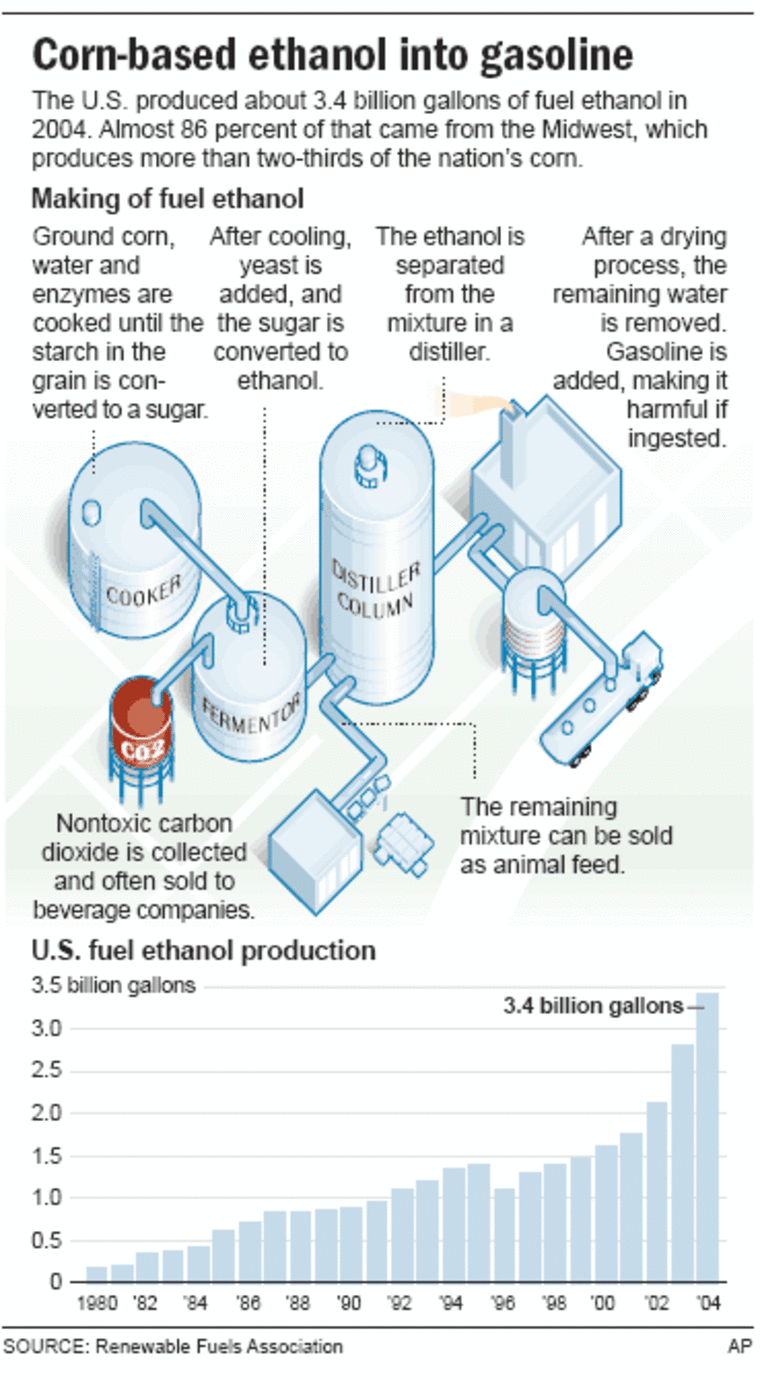In the lab, it’s a clear liquid, and at the pump it's liquid gold: Ethanol is the corn based-clean air additive U.S. refiners are scrambling to add to the nation's fuel supply.
As President Bush explained it to a Milwaukee audience on Feb. 6, “The more ethanol we use, the less crude oil we consume.”
It will also be a boon for farmers, like Ron Fluegel of Lena, Ill. “The renewable fuel is a win-win situation for everyone,” he says.
But critics charge ethanol is a money grab. It's big business for agricultural giants like Archer Daniels Midland, whose television ad says, “The world's demand for energy will never stop, which is why ADM will never stop.”
Last summer's energy bill mandated ethanol's use and, by May 5, many refineries will switch. That new demand has pushed ethanol to $2.80 a gallon — more than twice what it costs to make.
About a third of the nation's gasoline already contains up to 10 percent ethanol, and all cars on American roads can run on it. A cleaner, higher blend of 85 percent ethanol is currently available in 37 states.
But there is also another cost factor: Ethanol can't simply be pumped down existing pipelines. It needs to be transported by rail or truck. That’s overwhelming the transportation industry, causing delays, even hoarding, and running up the price.

“So this is a real big mess on the refining end that's going to create a situation that's going to keep gasoline prices uncertain and potentially very explosive,” says Phil Flynn of the futures and options brokerage Alaron Trading.
Still, the ethanol industry maintains it is still in its infancy and that prices will come down while reducing reliance on foreign oil.
Jay Butson is the president of Atkins Energy Cooperative made up of Northern Illinois and Southern Wisconsin farmers. He questions taking money out of the U.S. and sending it overseas to the Middle East. “Why not keep your dollars local in the Midwest?” he asks, adding, “What are we going to do for the future, for our kids?”
The U.S. could have a future powered from the heartland and not overseas oil. But are Americans willing to pay for it?